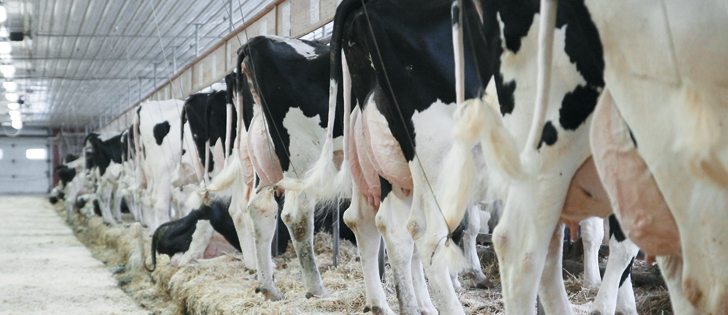Canada says dairy supply system doesn’t need changing
The controversy over Canadian dairy tariffs heated up last month between Canada and New Zealand during Trans-Pacific Partnership trade talks.
New Zealand argued during the talks that tariffs as high as 300 percent aren’t something it want included in a 21st century trade agreement.
“We think Canada would have the opportunity to update its dairy industry if it chose to do so as their trade barriers came down,” said Simon Tucker, New Zealand’s high commissioner in Canada.
Tucker said the TPP discussions between the 12 member countries were never about whether to get rid of trade barriers.
Read Also

Farmers urged to be grain-safe this fall
Working around grain bins comes with risk, from farmers falling to drowning in grain: Experts have five tips to help avoid grain-related accidents this harvest.
“Let’s agree that trade barriers have to go, and let’s have a conversation about how we’re going to go about dismantling them,” he said.
“We want it to be a genuine 21st century trade agreement.”
However, Tucker conceded that it isn’t up to New Zealand to tell Canada how to organize its dairy system.
Yves Leduc, director of international trade at Dairy Farmers of Canada, said Canada’s dairy supply man-agement system doesn’t need to be changed.
“We are managing the level of production,” he said.
“In order to do that and not produce more than what is required, we need to be in a position to manage the level of dairy products that is being im-ported into Canada.”
He said Canada imports more than 10 percent of its milk and dairy re-quirements. As well, the country imports five to six times more milk and dairy than the United States and eight to 10 times more than the European Union.
“When you look at the product being traded around the world, a lot of them are being heavily subsidized, especially from the United States and Europe,” he said.
The dairy industry is sometimes accused of inflating prices in Canada, but Leduc said perhaps the world price is deflated.
“Our prices are reflective of what it costs to produce milk in a nordic climate like Canada.”
New Zealand’s dairy industry has no supply management system and exports much of its production be-cause of a small population.
The country recently reached a free trade agreement with China, which has been called beneficial for both parties because of China’s need for more milk and New Zealand’s abundance.
However, it is not likely to be repeated between Canada and New Zealand.
Tucker said New Zealand is focused on getting rid of barriers to the dairy market.
However, the demand for dairy products is growing globally, and there is a need to produce more.
Tucker said there is an opportunity for Canadian dairies to participate in that growth if they phased out their tariffs.
“It’s an anomaly to use that a country like Canada should have 300 percent tariffs,” said Tucker.
Leduc said all countries have sensitivities to certain products, and Canada is no exception.
“When you look at trade negotiations, it’s not all black and it’s not all white,” said Leduc.















